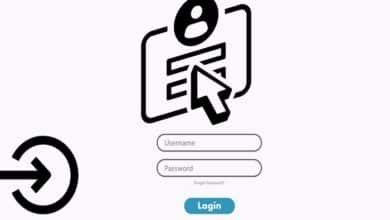Password Security: Protecting Your Digital Life

A strong password is the first line of defense against cyber threats. As our lives become more digital, protecting personal and professional information has never been more crucial. Passwords safeguard sensitive data, from banking and social media to emails and work accounts. Without a strong password, hackers can gain unauthorized access to your accounts, leading to identity theft, financial loss, and privacy breaches. A secure password ensures that only you have access to your digital world, and taking time to understand the significance of password security is the first step to keeping it safe.
Characteristics of a Secure Password
Creating a secure password involves more than just adding random characters. A strong password should be long, complex, and difficult to guess. It typically includes uppercase and lowercase letters, numbers, and special characters. Avoid using common words, names, or easily guessable information like birthdates. A secure password is unique and unpredictable, making it harder for hackers to crack. The strength of your password significantly influences your account’s security, so investing in creating a well-thought-out password is essential.
Common Password Mistakes to Avoid
Many people make mistakes that compromise their password security, even if unintentionally. One of the most common mistakes is reusing the same password across multiple accounts. This habit can lead to multiple account compromises if one password is leaked. Another common error is using weak or obvious passwords, such as “123456” or “password.” Additionally, writing down passwords in easily accessible places or sharing them with others can put you at risk. By avoiding these mistakes, you can significantly enhance your digital security.
Why You Should Regularly Change Your Passwords
Regularly changing your passwords reduces the risk of cyberattacks, as it prevents hackers from exploiting outdated credentials. Passwords can be exposed through data breaches, phishing attacks, or malware, making it critical to update them frequently. Changing your passwords every few months minimizes the impact of potential leaks and helps secure your accounts. While it may seem inconvenient, the practice of updating passwords ensures that even if a password is compromised, it won’t be usable for long.
The Role of Two-Factor Authentication (2FA) in Password Security
Two-factor authentication (2FA) adds an additional layer of security to your accounts by requiring a second form of verification in addition to your password. This could be a code sent to your phone, a fingerprint, or a one-time password generated by an app. With 2FA, even if someone discovers your password, they can’t access your account without the second authentication step. Enabling 2FA on accounts where it’s available significantly enhances security, as it prevents unauthorized access even if your password is compromised.
How Password Managers Can Help You Stay Secure
Password managers are valuable tools for securely storing and organizing passwords. They generate strong, unique passwords for each of your accounts, so you don’t have to remember them all. With a password manager, you only need to remember one master password. Most password managers also offer features like secure notes, password health analysis, and alerts for weak or reused passwords. By using a password manager, you can ensure that your passwords are strong, unique, and readily available when needed, without compromising security.
Creating and Remembering Strong Passwords
Creating and remembering strong passwords can be challenging, but several techniques make it easier. One effective method is the use of passphrases—random combinations of unrelated words or a sentence that’s easy to remember but hard to guess. Another method is to use mnemonics to remember complex passwords. Avoid using dictionary words or anything personally identifiable. The best passwords are those that are random and unique, offering little for hackers to guess. With practice, creating strong passwords becomes more manageable and less daunting.
Protecting Your Passwords from Phishing Attacks
Phishing attacks are one of the most common ways hackers steal passwords. These attacks typically involve emails or messages that trick users into providing their login credentials. Protecting your passwords from phishing requires vigilance. Always verify the sender’s email address, look for suspicious links, and never enter your password on unfamiliar websites. Use two-factor authentication and, if possible, a password manager that can detect phishing attempts. Recognizing phishing signs can help you avoid falling victim and keep your passwords secure.
The Dangers of Sharing Passwords
Sharing passwords, even with trusted friends or family members, can put your accounts at risk. Once your password is shared, it’s no longer solely under your control, increasing the risk of unintended access. Shared passwords are also harder to track, and if one person leaks or forgets the password, it can create security vulnerabilities. Avoid sharing passwords whenever possible. If you must share, use secure methods and update your password immediately afterward. Sharing passwords weakens your security, so consider alternatives like account delegation instead.
Conclusion
In today’s digital age, password security is vital to protecting your personal information and online identity. By understanding the importance of strong passwords, avoiding common mistakes, regularly updating them, and leveraging tools like two-factor authentication and password managers, you can secure your online accounts effectively. Staying aware of phishing threats and avoiding password sharing also enhances your security. Remember, password security is an ongoing process—commit to it, and you’ll be better protected against cyber threats.
FAQs
- How often should I change my passwords?
- It’s recommended to change passwords every three to six months, especially for important accounts. Regular updates reduce the risk of compromised credentials.
- What is the best way to remember strong passwords?
- Use a password manager to securely store complex passwords, or try using a memorable passphrase with unrelated words.
- Are password managers safe?
- Yes, reputable password managers use strong encryption to protect your passwords and often include security features like breach alerts.
- What should I do if my password is exposed in a data breach?
- Immediately change your password and enable two-factor authentication on the affected account to enhance security.
- Is two-factor authentication necessary if I have a strong password?
- Yes, two-factor authentication provides an additional layer of protection, making it harder for hackers to access your account even if they know your password.





